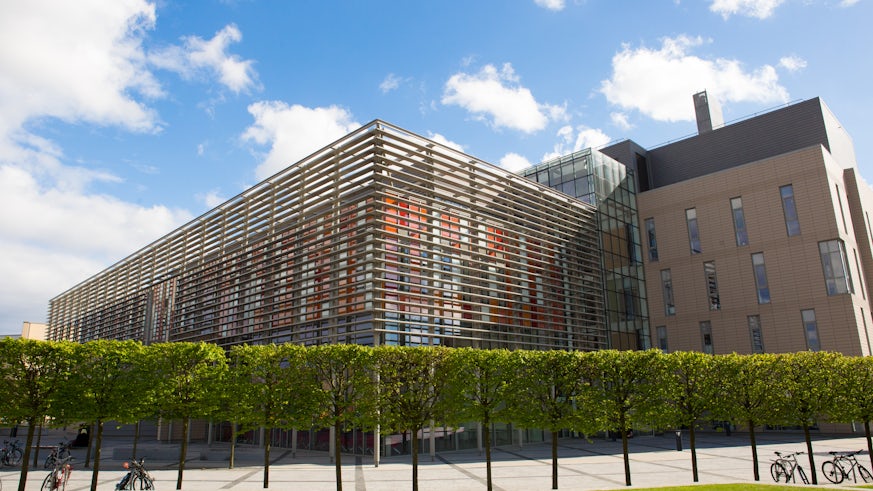Katie Daughters on her Waterloo Foundation Early Career Fellowship
11 June 2020

Waterloo Foundation Research Fellow Dr Katie Daughters has been offered her first Lectureship at the University of Essex.
Dr Daughters' experience with the Waterloo Foundation Fellowship at Cardiff University initially led her to secure a two year postdoc working on the 'Becoming Social' grant led by Dr Kami Koldewyn at Bangor University in the School of Psychology. The grant investigated how we perceive social interactions and gave Dr Daughters an opportunity to further her skills in neuroimaging. In her post at the University of Essex, she will be developing lines of research based on her previous posts but predominantly focusing on social perception and how our perceptions change in different social and emotional contexts .
During her Fellowship, Dr Daughters focused primarily on two research projects. The first was a collaborative project headed by Professor Ros John in the school of Biosciences called the 'Grown in Wales' project. Her role within this larger project was to investigate the effect of maternal oxytocin concentrations on the emotional and social development of the infants and also the quality of mother-infant interaction and allowed her to develop new skills in developmental psychology.
The main focus of the Fellowship however, was a study that Dr Daughters designed, and used to support further Fellowship applications. The aim of the study was to investigate the effectiveness of two interventions, one physiological - intranasal oxytocin administration - and one psychological - the Cardiff Emotion Recognition Training program - on male undergraduates’ emotion recognition, with a view to running the same study in the intended target population, those with emotion recognition difficulties, as part of a future fellowship. In total, 104 male undergraduates were recruited to the study, making it the largest oxytocin administration study to be carried out at Cardiff University.
Dr Daughters said 'Acquiring your first academic post after submitting a PhD is a critical junction in your career, and the success of this first post, I believe, can make a huge difference as to whether an individual remains in academia. My Waterloo Foundation Early Career Fellowship was an invaluable experience. I am sure my Fellowship helped me to secure not only my postdoctoral position at Bangor University, but ultimately to achieve the holy grail in academia – a permanent post. The time, space, dedicated funding and active encouragement to generate outputs from my PhD, design and manage my first independent research project, and to write grants has been crucial to my development at an early stage. I am very grateful to have received such support from The Waterloo Foundation.
This Fellowship scheme allows early career researchers to prioritise getting their publications out from their PhD. From my experience, I know it can be extremely challenging to find time to do this in a traditional post-doc position. I was able to publish three further papers from my PhD during my fellowship and attended several conferences to disseminate my findings. By getting your publications out early, you are able to start introducing your research to others, and this can be invaluable in terms of securing your next position.'
For more information on Waterloo Foundation Fellowship opportunities here.